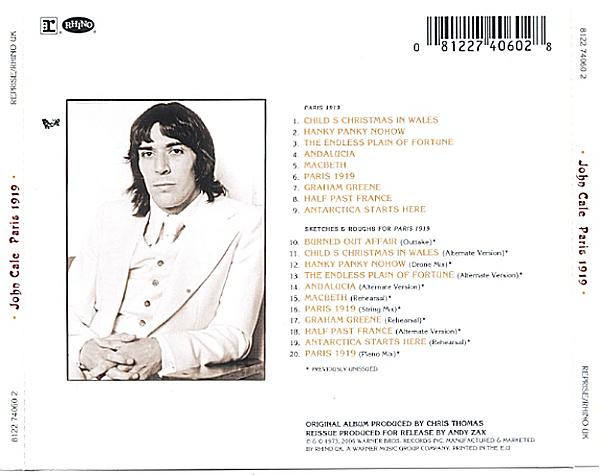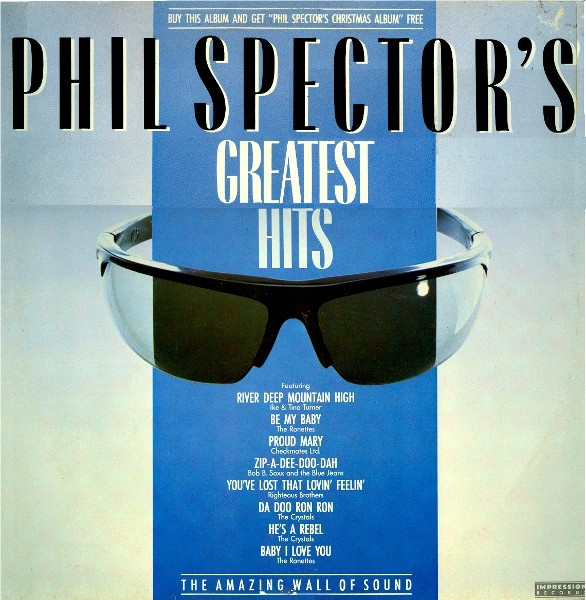John Cale: Paris 1919 - 1973
I am not too familiar with the post-Velvet Underground work of Welsh musician John Cale (not to be confused with blueser J.J. Cale). It is said that this 1973 album is his most accessible, and possibly his best. I'm not sure I agree with the accessibility thing, however. I find it most obscure.
It is said to be influenced by The Beach Boys late sixties/early seventies work, along with that of Procol Harum. It definitely has that clever, artiness about it, both lyrically and in its heavy orchestration. Literary and historical references abound too. There is a bit of Al Stewart about it in that respect. It is all a bit too proggy for my liking, though. I have classified it as prog, because it doesn't convince me that it is either rock or folk. So, prog it has to be then.
The album suffers a little from a bit from a murky production, but it is a thought-provoking piece of work.
Child's Christmas In Wales is an odd opener, as it is so seasonally relevant. Although it is not a typical sleighbells number, there is just something wintry about it. The lyrics, though, are enigmatically un-Christmassy. Indeed, I haven't got a clue what they are about, with all their classical references. The guitar sound is appealingly murky and I love the warm bassline.
Hanky Panky No How is mysterious, acoustic-based and folky as also is the sombre The Endless Plain Of Fortune, a darkly-orchestrated number full of more intriguing lyrics. The quiet and haunting Andalucia reminds me of Al Stewart's work from the same period, as I noted earlier. I like the subtle bass and drum backing. Very 1973 folky.
Finally we get some rock on the fuzzy, riffy but muffled-sounding Macbeth. Cale's guitar screams and wails, mid-song. I have to admit it was good to hear a song that raised the album from its hitherto reflective torpor. There is a sixties lo-fi feel to the sound, though.
Paris 1919 has a proggy sort of jaunty pretension to it, for me. It has vague hints of CSNY's Our House. It is not a track that really does it for me, I'm afraid. I have to say the same for Graham Greene, which features an awful cod-reggae backing and an equally cringe-worthy vocal. Seventies rockers just couldn't do reggae, could they? It does not surprise me that Brian Eno and Cale worked together subsequently, because there is something very Eno circa 1973 (Here Come The Warm Jets) about this. Something quirky and just plain weird.
Half-Past France is like something Roger Waters would come up with. I find it pretentious musically and lyrically. Not for me. Antartica Starts Here has something of Cale's old mate Lou Reed about its whispered, portentous vocal and the gentle backing. By now, though, I fear that I have had my fill. Thankfully, it is a short album.
I thought I would like this album far more than I do. In fact I don't really like it very much at all. Sorry. Maybe it was J.J. Cale that was in my mind after all. I think so. Give me some blues.....










